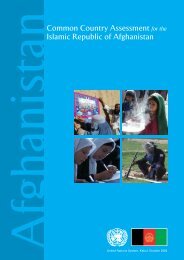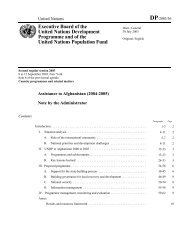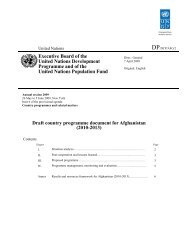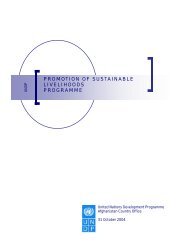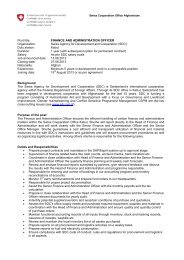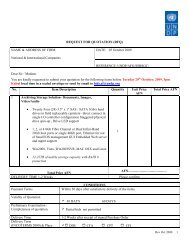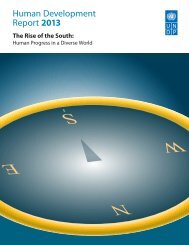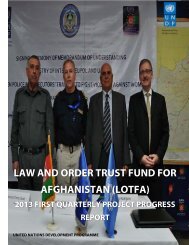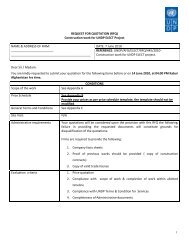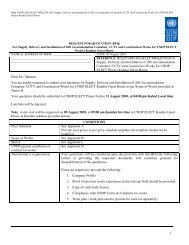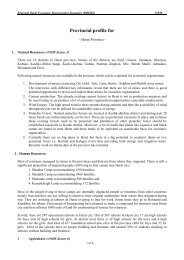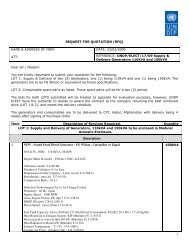Development Cooperation Report 2012 - UNDP Afghanistan
Development Cooperation Report 2012 - UNDP Afghanistan
Development Cooperation Report 2012 - UNDP Afghanistan
You also want an ePaper? Increase the reach of your titles
YUMPU automatically turns print PDFs into web optimized ePapers that Google loves.
40<br />
The peer review mechanism, which allows the government and donors, to discuss<br />
priorities and review progress on implementation, has proved to be a successful<br />
process.<br />
While these achievements are worthwhile, the post Tokyo environment in <strong>2012</strong><br />
provides an opportunity for both the government and the international community<br />
to adopt a more structured approach to reform institutions and to improve the<br />
effectiveness of aid.<br />
In its Aid Management Policy, the government has identified a number of priority areas<br />
in which progress has been lagging in 2011, but would require rigorous focus in the<br />
years ahead. These aspects include predictability of aid through financing agreements,<br />
division of labor (DoL) among donors in each sector, investment in projects with the<br />
potential to improve regional cooperation and economic integration. Fundamental<br />
for achieving self-reliance, is the effective implementation of the outcome of the<br />
Tokyo Conference.<br />
TOKYO INTERNATIONAL CONFERENCE ON<br />
AFGHANISTAN – <strong>2012</strong><br />
DEVELOPMENT COOPERATION REPORT<br />
The Tokyo Conference on <strong>Afghanistan</strong> held in July <strong>2012</strong>, once again, brought together<br />
representatives from the GIRoA and International Community to reaffirm their<br />
commitments and further consolidate their development partnership in <strong>Afghanistan</strong><br />
from Transition and through the Transformation Decade. These commitments are<br />
built upon the outcomes of the London Conference (2010), Kabul Conference (2010)<br />
and specifically the recent International Conference on <strong>Afghanistan</strong> in Bonn (2011),<br />
where the Afghan Government and the International Community mutually renewed<br />
their long-term commitments in the areas of governance, security, peace building,<br />
economic and social development, and regional cooperation.<br />
To support <strong>Afghanistan</strong>’s vision of moving towards increasing self-sufficiency, the<br />
Tokyo Conference consolidated mutual commitments by the International Community<br />
and the GIRoA into a Partnership for Self-Reliance in <strong>Afghanistan</strong> from Transition to<br />
Transformation. Thus forth, the International Community committed to providing<br />
over USD 16 billion through 2015, and sustaining support, through 2017, at or near<br />
levels of the past decade to respond to the fiscal gap estimated for the beginning<br />
years of the Transformation Decade by GIRoA and the World Bank.<br />
Under the commitments of Tokyo Conference, the International Community, once<br />
again, welcomed ownership of development investments by the GIRoA and reaffirmed<br />
its commitment of aligning 80 percent of aid with the NPPs and channeling at least 50



